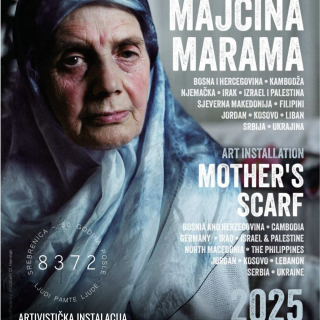Author: Jelena Jevđenić, culture editor of the portal Impuls
When there is a war, or when someone writes about war, or when someone looks back to war in times of peace, the key figure is a man. Women are invisible in war, as if they were not part of it, and they are actually very much part of it. Little has been written about what the most recent war was like for women.
Post-war consequences are infinite, and one of the greatest ones is the occurrence of PTSP.
When the PTSP disorder is mentioned, it is mostly mentioned in the context of men, which is understandable up to a certain point, since they directly participated in the war events. However, the presence of PTSP in women should in no way be neglected. Research about this topic shows that women suffering from PTSP, contrary to men, mostly feel guilt and shame. Insufficient care of the state and silence about women has led to a situation in which women blame themselves for their trauma. In our country, victim blaming is frequent.
Only women know what it was like for them during the war. Both women that were exposed to direct war conflicts and women that stayed home alone with children and women victims of rape and atrocious abuses.
During the war, women assumed the role of both parents. They took care of sons, fathers, husbands, brothers, friends at the front. They somehow managed to find food, took care of hygiene, firewood, education and health of their children. They were waiting for the most terrible news about their dearest ones. They mourned the ones they lost and they had to be composed, never sick or weak. In addition to this, women had to flee their homes, women in urban areas had to go to work, as if everything was absolutely normal in the country, women in rural areas had to perform even more difficult manual labour.
Many women, who had been raised in strict patriarchal families, had remained alone for the first time during the war, and had to take care of themselves, children and older family members. All of a sudden, they unofficially became the heads of families that were expected to bear everything on their own. And they managed to do so, unaware or for the first time aware of their strength and their possibilities, in order to be sent back somewhere in the dark after the war. In times of peace, they were abandoned, alone with their traumas and wounds. Without any space and time to face everything they had been through, both in psychological and physical terms, because life goes on and their roles are determined by someone else.
Facing the past, especially war-related past, should be put, among other things, on the ”list” and injustice towards women. We should not forget women that have not survived war atrocities and women that were unable to achieve roles they wished for themselves due to war-related consequences in peace. We should encourage women to tell their story, because a suppressed trauma creates a new trauma. Acknowledgement should be given to them for everything that they have courageously experienced and the great weight they have carried on their shoulders.




